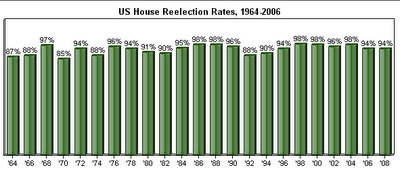 According to the Los Angeles Times
According to the Los Angeles Times on Jan. 30, “Ed Roski Jr., the L.A. County billionaire who got state legislators to exempt his proposed NFL stadium from environmental laws, has showered the lawmakers with tens of thousands of dollars in campaign cash… The money is part of $505,000 that Roski put into California political campaigns during the second half of 2009, including $300,000 toward a proposed ballot measure that would change term limits.”
That's called payback.
This legal bribe is being offered as California politicians are once again raising cash for a referendum effort to overturn or weaken term limits in California. In their last financial disclosure report, the petition effort reports raising about $485,000, a full $300,000 of it from Roski. The rest is from other special interests with pending business before the legislature including the LA County Federation of Labor, LA Jobs PAC, O'Melveny & Myers trial lawyers PAC, a police union and the BNSF Railway Co.
This will be the third time Californians will be asked to vote on term limits since the voters originally passed them back in 1990. In both 2002 and 2008, the voters rebuffed the politicians.
Money isn't enough by itself. In both of those previous efforts, the anti-term limits forces raised and spend some 10 times as much much as the term limits supporters.
So, they've dusted off and tweaked a gimmick in order to trick the people into voting for it. In California, the lower house is limited to six years and the upper house, eight. That is, you could serve in one and then the other for a total of 14 years total. The new proposal to weaken term limits will increase the number of years to 12 in each house, but limit politicians to a total of 12 overall. They are going to claim that their proposal actually
strengthens the term limits law, as it reduces total service to 12 years from 14. You have to admit: it may be arrogant and deceptive, but it is
clever.
Greased with enough cash and enough obfuscation, the politicians and lobbies think the third time might be the charm. They've already squandered tens of millions of dollars in their quest to retain power but their purse keeps growing because they have the favors to grant. In a state with a 12%-plus unemployment rate, the jobs they're fighting the hardest to keep are their own.
 Nancy Graham reached the end of her second term, she she initially ran to the courts to circumvent the 8-year term limit. The she thought better of it: "The city's not about one person," she said.
Nancy Graham reached the end of her second term, she she initially ran to the courts to circumvent the 8-year term limit. The she thought better of it: "The city's not about one person," she said.
 It is not late for Mayor Frankel to tuck the burst trial balloon in her pocket and, with dignity, serve out her last year as mayor. She can always run again in the future after sitting out a term if she wishes, albeit without the powers of incumbency that make a low-turnout reelection a formality.
It is not late for Mayor Frankel to tuck the burst trial balloon in her pocket and, with dignity, serve out her last year as mayor. She can always run again in the future after sitting out a term if she wishes, albeit without the powers of incumbency that make a low-turnout reelection a formality.
